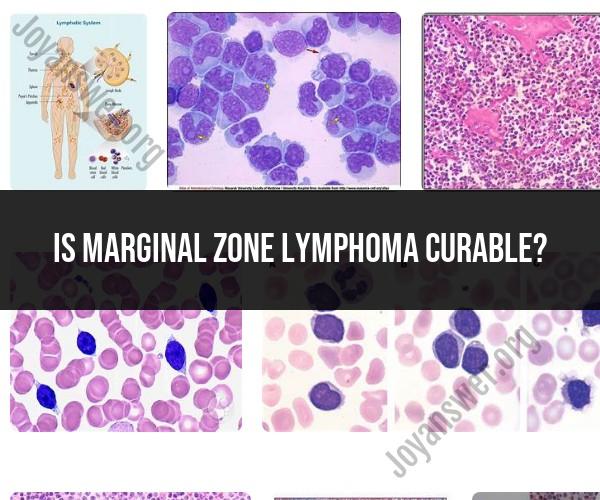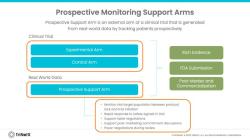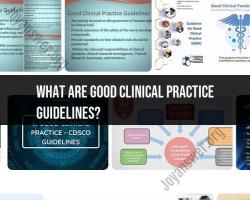Is marginal zone lymphoma curable?
Marginal zone lymphoma (MZL) is a type of non-Hodgkin lymphoma that originates in B-cells and primarily affects the lymph nodes and other lymphatic tissues. The curability of MZL depends on several factors, including the subtype of MZL, the stage at which it is diagnosed, and the individual's response to treatment. Here are some key points to consider:
Indolent Nature: MZL is generally considered an indolent or slow-growing type of lymphoma. Many individuals with MZL can live with the disease for an extended period, and some may not require immediate treatment, especially if the disease is detected at an early stage.
Subtypes: MZL includes three main subtypes: extranodal MZL, nodal MZL, and splenic MZL. The prognosis and treatment approach can vary by subtype.
Early Detection: When MZL is diagnosed at an early stage and is localized (stage I or II), the chances of achieving a complete response to treatment are higher. In some cases, individuals with early-stage MZL may be considered potentially curable with appropriate treatment.
Advanced Stages: Advanced-stage MZL (stage III or IV) or MZL that has transformed into a more aggressive form may be more challenging to cure. However, treatments can still be effective in controlling the disease and extending survival.
Response to Treatment: The response to treatment is a critical factor in determining the long-term outlook for individuals with MZL. Many individuals with MZL respond well to treatment and may experience long periods of remission.
Maintenance Therapy: In some cases, maintenance therapy with rituximab or other agents may be recommended to prolong remission and control the disease.
Recurrent MZL: MZL can sometimes recur after an initial response to treatment. In these cases, additional treatments may be required to manage the disease.
Clinical Trials: Clinical trials are ongoing to explore new treatments and therapeutic approaches for MZL. Participation in clinical trials may provide access to novel therapies that could improve the prognosis for individuals with MZL.
It's important to note that while complete cure is not always achieved for MZL, many individuals can live with the disease for many years, and their quality of life can be maintained with appropriate medical care. Regular medical monitoring and follow-up appointments are essential to track the progress of the disease and adjust the treatment plan as needed. Additionally, healthcare teams work closely with individuals to tailor treatment strategies to their specific circumstances and goals. As with any cancer diagnosis, the prognosis and treatment options for MZL should be discussed with a qualified oncologist who can provide personalized guidance based on the individual's condition.
Marginal Zone Lymphoma: Is it Curable?
Marginal zone lymphoma (MZL) is a type of non-Hodgkin lymphoma that affects the B cells. It is a relatively rare type of lymphoma, but it is the most common type of indolent lymphoma, which means that it is slow-growing.
The curability of MZL depends on the type and stage of the disease. For localized MZL, the 5-year survival rate is over 90%. For advanced MZL, the 5-year survival rate is about 70%.
Even if MZL is not curable, it is often treatable and can be managed for many years. There are a variety of treatment options available for MZL, and new treatments are being developed all the time.
Treatment Approaches and Outcomes for Marginal Zone Lymphoma
The treatment approach for MZL will depend on the type and stage of the disease, as well as the patient's overall health.
Some common treatment options for MZL include:
- Watch and wait: This approach is often used for patients with localized MZL that is not causing any symptoms.
- Radiation therapy: This treatment uses high-energy rays to kill cancer cells.
- Chemotherapy: This treatment uses drugs to kill cancer cells.
- Immunotherapy: This treatment uses the body's own immune system to fight cancer cells.
- Targeted therapy: This treatment targets specific molecules or pathways that are involved in the growth and survival of cancer cells.
The outcomes for MZL vary depending on the type and stage of the disease, as well as the patient's overall health. However, in general, the outcomes for MZL are good.
Relapse and Remission in Marginal Zone Lymphoma
MZL can relapse, or come back, after treatment. The risk of relapse is higher for patients with advanced MZL.
If MZL relapses, there are a number of treatment options available. The treatment approach for a relapse will depend on the type and stage of the relapse, as well as the patient's overall health.
Patients with MZL can also go into remission, which means that there is no evidence of cancer in the body. Remission can be temporary or permanent.
Advances in Research and Therapies for Marginal Zone Lymphoma
Researchers are constantly working to develop new and improved treatments for MZL. Some of the promising new treatments for MZL include:
- Immunotherapy: Immunotherapy is a type of cancer treatment that uses the body's own immune system to fight cancer cells. Immunotherapy has shown promising results in the treatment of MZL.
- Targeted therapy: Targeted therapy is a type of cancer treatment that targets specific molecules or pathways that are involved in the growth and survival of cancer cells. Targeted therapy has also shown promising results in the treatment of MZL.
Researchers are also working to develop new ways to diagnose and stage MZL. This is important because early diagnosis and staging can lead to better treatment outcomes.
Coping and Support for Individuals with Marginal Zone Lymphoma
A diagnosis of MZL can be overwhelming and stressful. It is important for individuals with MZL to have a strong support system in place.
There are a number of resources available to help individuals with MZL cope with their diagnosis and treatment. These resources include:
- Support groups: Support groups can provide patients with an opportunity to connect with other people who have MZL and share their experiences.
- Online communities: There are a number of online communities for people with MZL. These communities can provide patients with information, support, and advice.
- Professional counseling: Professional counseling can help patients with MZL cope with the emotional and psychological challenges of their illness.
If you have MZL, it is important to reach out for help and support. There are many people who care about you and want to help you through this difficult time.












